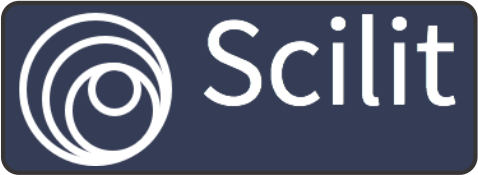Analisis Pengaruh Revolusi Industri Terhadap Manusia dan Lingkungan Ditinjau dari Perspektif Maqashid Syariah
DOI:
https://doi.org/10.21154/joie.v2i1.3987Keywords:
Industrial Revolution, Islamic worldview, dhohuriyatul khoms, positivist, pragmatistAbstract
The development of the industry over time developed very rapidly. Its development began in the 1760s until now. Industrial Revolution 4.0 was officially born in Germany when the Hannover Fair was held in 2011. Of course, these developments have a significant impact on human life, even the surrounding environment. Such air pollution is caused from waste gases containing hydrocarbons (HC), sulfur oxides (Sox), carbon monoxide (CO), chloral fluoro carbon cooling materials (CFCs), nitrogen oxides (NOx), and particulate matter (dust, ash). In fact, according to data from the Central Statistics Agency in 2020, there are at least 30,381 industries in Indonesia. Therefore, this paper tries to analyze in detail the extent of the impact of industrialization on people and the environment with the approach of Worldview Islam. The reason for this approach is that human attitudes and ways of thinking have an influence on the surrounding environment. Whereas humans have various attitudes in understanding existing realities, including the development of the industry. Such as positivist and pragmatic attitudes that are the basis for environmental damage. However, in the perspective of Islam maintaining the environment and balance of life is the law mandatory. Finally, this article found that the obligation to maintain the environment including maintaining religion, soul, descendants, reason and human property (dhohuriyatul khoms) is mandatory.
Transformasi industrialisasi dari waktu ke waktu berjalan bagitu cepat. Perkembangannya dimulai sejak tahun 1760an hingga saat ini yaitu pada tahap revolusi industri 4.0 yang resmi lahir di Jerman ketika diadakannya Hannover Fair pada tahun 2011. Perkembangan tersebut memberikan dampak yang nyata pada kehidupan manusia, bahkan lingkungan sekitar. Seperti pencemaran udara disebabkan dari limbah gas yang mengandung hidrokarbon (HC), oksida belerang (Sox), karbon monoksida (CO), bahan pendingin kloro fluoro karbon (CFC), oksida nitrogen (NOx), dan material partikulat (debu, abu). Padahal menurut data di Badan Pusat Statistik pada tahun 2020, setidaknya di Indonesia terdapat 30.381 industri. Makalah ini mencoba menganalisa secara detail sejauhmana dampak industrialisasi terhadap manusia dan lingkungan hidup dengan pendekatan Worldview Islam. Hal itu, karena sikap dan cara berpikir manusia memberikan pengaruh terhadap lingkungan sekitarnya. Sedangkan manusia memiliki sikap yang beragam dalam memahami segala realitas, termasuk perkembangan industry. Seperti sikap positivis dan pragmatis menjadi dasar terjadinya kerusakan lingkungan hidup. Padahal dalam prespektif Islam menjaga lingkungan dan keseimbangan hidup adalah hukumnya wajib. Akhirnya artikel ini menemukan bahwa kewajiban menjaga lingkungan termasuk menjaga agama, jiwa, keturunan, akal dan harta benda manusia (dhohuriyatul khoms) yang bersifat wajib.
References
Faculty of Informatics, International University of Rabat Technopolis parc, Sala el jadida 11100, Morocco et al. vol. 5, no. 9. 2018, “Big Data and Big Data Analytics: concepts, types and technologies”, International Journal of Research and Engineering. pp. 524”“8 [https://doi.org/10.21276/ijre.2018.5.9.5].
Abdullah bin Umar bin Muhammad As-sahyabaani. 2008, Ahkam Al-Bi`ah fi Al-Fiqh Al-Islami, Beirut: Daar Ibn Al-Jauzi.
Adnan Bin Shodik Dhohir. 2009, Ahkamu Biah Fiqhil Islami. lm 37., Risalah Al-Magister, Quliyah Syariah wal Qanun fi al-jami’ah Al-Islamiyah.
Ali Jum’ah. 2009, Al-bi`ah wal Hifadz ’Alaiha min Mandzhur Al-Islami, Al-Qahirah: Al-Wabil Al-Shayib.
Al-Qaradhawi, Yusuf. 2002, “Islam agama ramah lingkungan”, Pustaka Al-Kautsar, Jakarta Timur.
____. 2002, “Islam agama ramah lingkungan”, Pustaka Al-Kautsar, Jakarta Timur.
Annisa, Amalia. 2021, Sejarah Revolusi Industri dari 1.0 sampai 4.0, Unpublished [https://doi.org/10.13140/RG.2.2.20215.24488].
Comte, Auguste. Reissued, Truebner and Co, 1865 edition, trans. by John Henry Bridges. 2009, A General View of Positivism, Cambridge: Cambridge Univ. Press.
Cox, Harvey. 2013, The secular city: secularization and urbanization in theological perspective, Princeton: Princeton University Press.
Fajariah, Mutiarawati and Djoko Suryo. vol. 8, no. 1. 2020, “Sejarah Revolusi Industri di Inggris Pada Tahun 1760-1830”, HISTORIA : Jurnal Program Studi Pendidikan Sejarah. p. 77 [https://doi.org/10.24127/hj.v8i1.2214].
Hasil Pencarian - KBBI Daring. https://kbbi.kemdikbud.go.id/entri/industrialisasi, accessed 11 Nov 2021.
____. https://kbbi.kemdikbud.go.id/entri/industri, accessed 10 Nov 2021.
____. https://kbbi.kemdikbud.go.id/entri/materialisme, accessed 11 Nov 2021.
____. https://kbbi.kemdikbud.go.id/entri/pragmatis, accessed 11 Nov 2021.
Husain Al-Khusni. 2004, Al-Islam Wa Biah: Khutuwat Nahwa Fiqh Bi`i, Beirut: Daar Al-Hadi.
“International encyclopedia of the social and behavioral sciences”, Choice Reviews Online. vol. 53, no. 03. 2015. pp. 53-1079-53”“1079 [https://doi.org/10.5860/CHOICE.192822].
Kasali, Rhenal. 2019, Distruption Tak Ada yang Tak Bisa Diubah Sebelum Dihadapi Motivasi Saja Tidak Cukup, Jakarta: Gramedia.
Klaus Schwab. vol. 14. 2016, “The fourth industrial revolution”, World Economic Forum, New York: Crown Publishing [https://doi.org/10.4337/9781786430328.00006].
M. Quraish Shihab. 2002, Tafsir Al-Misbah: Pesan, Kesan, dan Keserasian al-Qur’an, Jakarta: Lentera Hati.
Martin, Elizabeth A. 2012, Kamus Sains, Yogyakarta: Pustaka Pelajar.
____. 2012, Kamus Sains, Yogyakarta: Pustaka Pelajar.
Parker, Stanley. 1981, The sociology of industry, London: Allen & Unwin. http://public.eblib.com/choice/publicfullrecord.aspx?p=235376, accessed 10 Nov 2021.
Philip Kristanto. 2013, Ekologi Industri, Yogyakarta: Penerbit Andi.
Plato. trans. by Jowett Benjamin. 1956, Protagoras, New York: The Bobbs Merrill.
Rappaport, Roy A., Ellen Messer, and Michael Lambek (eds.). 2001, Ecology and the sacred: engaging the anthropology of Roy A. Rappaport, Ann Arbor: University of Michigan Press.
Sawitri, Dara. vol. 4, no. 3. 2019, “Revolusi Industri 4.0 : Big Data Menjawab Tantangan Revolusi Industri 4.0”, Jurnal Ilmiah Maksitek. pp. 1”“9.
“Speech by Federal Chancellor Angela Merkel to the OECD Conference”, Website of the Federal Government. https://www.bundesregierung.de/breg-en/chancellor/speech-by-federal-chancellor-angela-merkel-to-the-oecd-conference-477432, accessed 4 Nov 2021.
Statistik, Badan Pusat. 2020, Direktori Industri Manufaktur Indonesia 2020, Jakarta: Badan Pusat Statistik. p. 1117.
Sumantri, Arif. 2015, Kesehatan Lingkungan, Jakarta: Kencana.
“The New Facts of Life”, ecoliteracy.org. https://www.ecoliteracy.org/article/new-facts-life, accessed 11 Nov 2021.
Zarkasyi, Hamid Fahmy. ed. by Elvan Syaputra. 2010, Liberalisasi Pemikiran Islam: Gerakan bersama Misionaris, Orientalis dan Kolonialis, Ponorogo: Centre for Islamic and Occidental Studies (CIOS ISID Gontor.


















